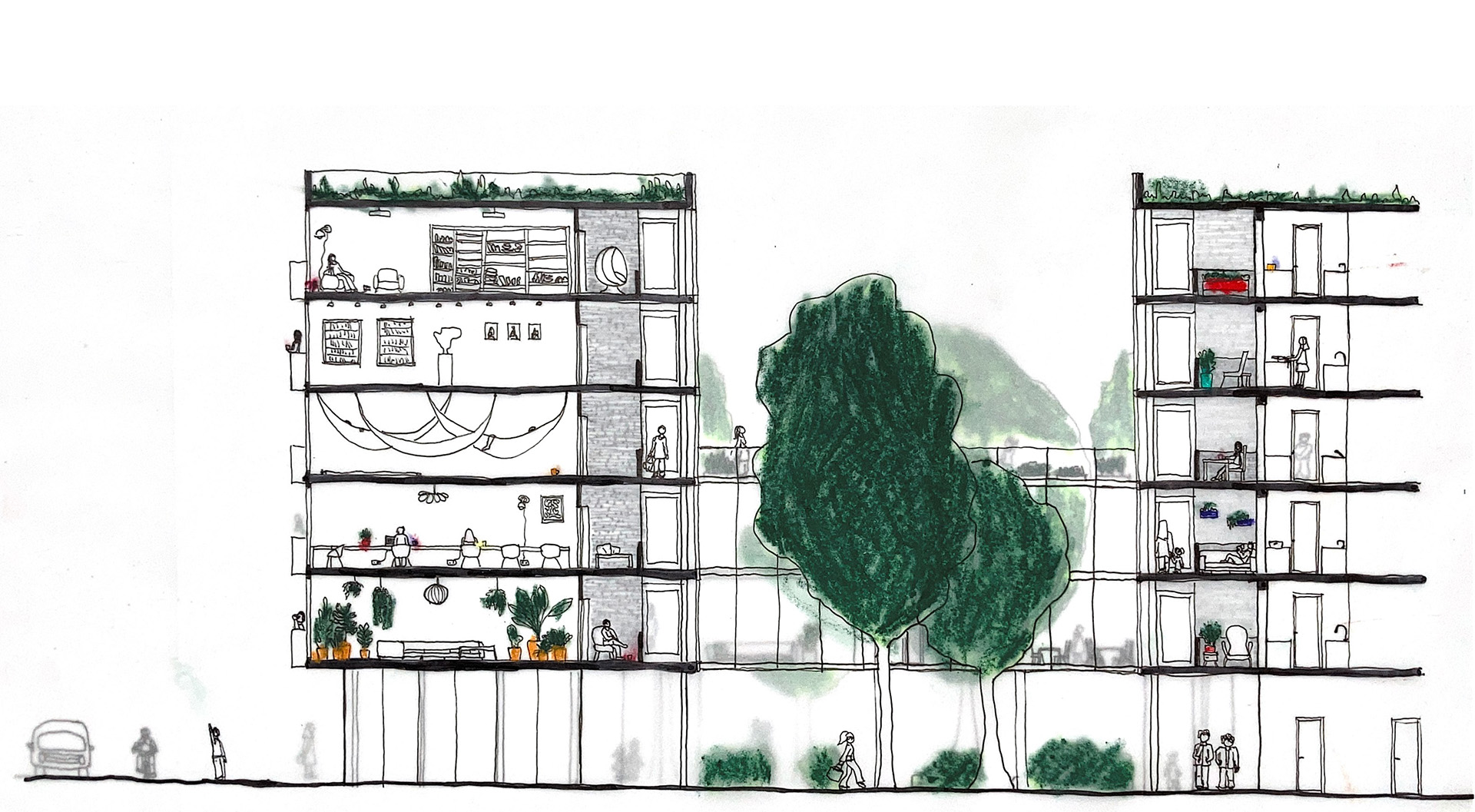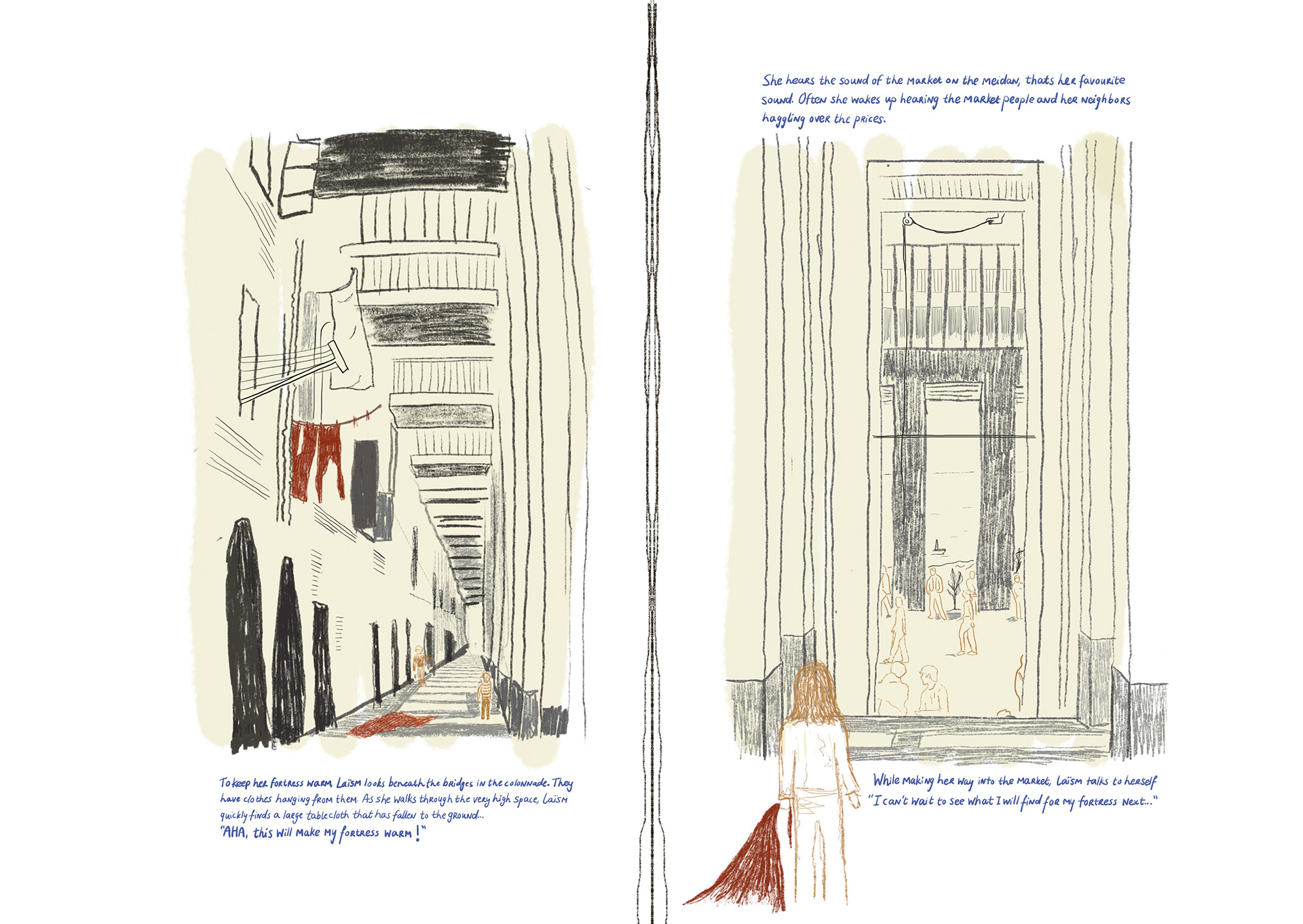Building Ideologies
Building Ideologies examines the interplay between socio-political concerns and our built environments, and carefully considers which perspectives we adopt to study these entanglements. Rather than formulating solutions, it sets out to sharpen our understanding of the ideological challenges that those engaged in designing our built environments face.

Focus and approach
Storytelling and ficto-critical approaches are central to the work of Building Ideologies, as we (re)consider the methods, evidence, and narratives that we use to construct portraits of architectural culture. A question that is central in the courses offered by Building Ideologies is: How do we recount stories about architecture and urban design and whose perspectives do we include? The format that Building Ideologies has chosen to address this question is the short story graphic novel.

Programme
MSc 2 studio
The Msc2 studio ‘Freedom’ examines what freedom might mean in architecture and urban design today, and how our built environments might change as we weigh individual freedom against ‘the common good’, also taking into account the role that conventions play in enabling/limiting people’s freedoms, and the agency of the architect vis-à-vis the agency of the resident/user.
In the ‘Freedom’ studio, students design a work-dwelling complex that offers housing for 50-100 people in an inner-city plot. The final design is presented in the form of a short story graphic novel that follows one day in the lives of three different occupants/users of the work-dwelling complex.
Staff
Prof.dr. Janina Gosseye, Soscha Monteiro, Saman Seyff.
Additional information
For detailed course descriptions, please visit the study guide:
MSc 2* (only in spring semester)
* The MSc2 semester of the Architecture track consists of 5 credits of compulsory courses and 25 credits of electives, of which an Architecture approved MSc2 elective design studio. See also the Elective Design Studios page for a full overview of MSc2 Architecture design projects.